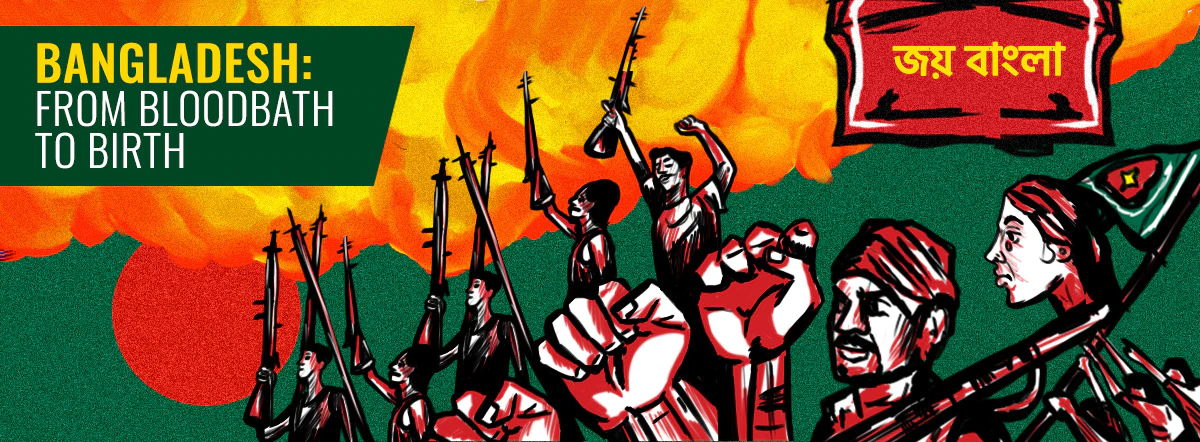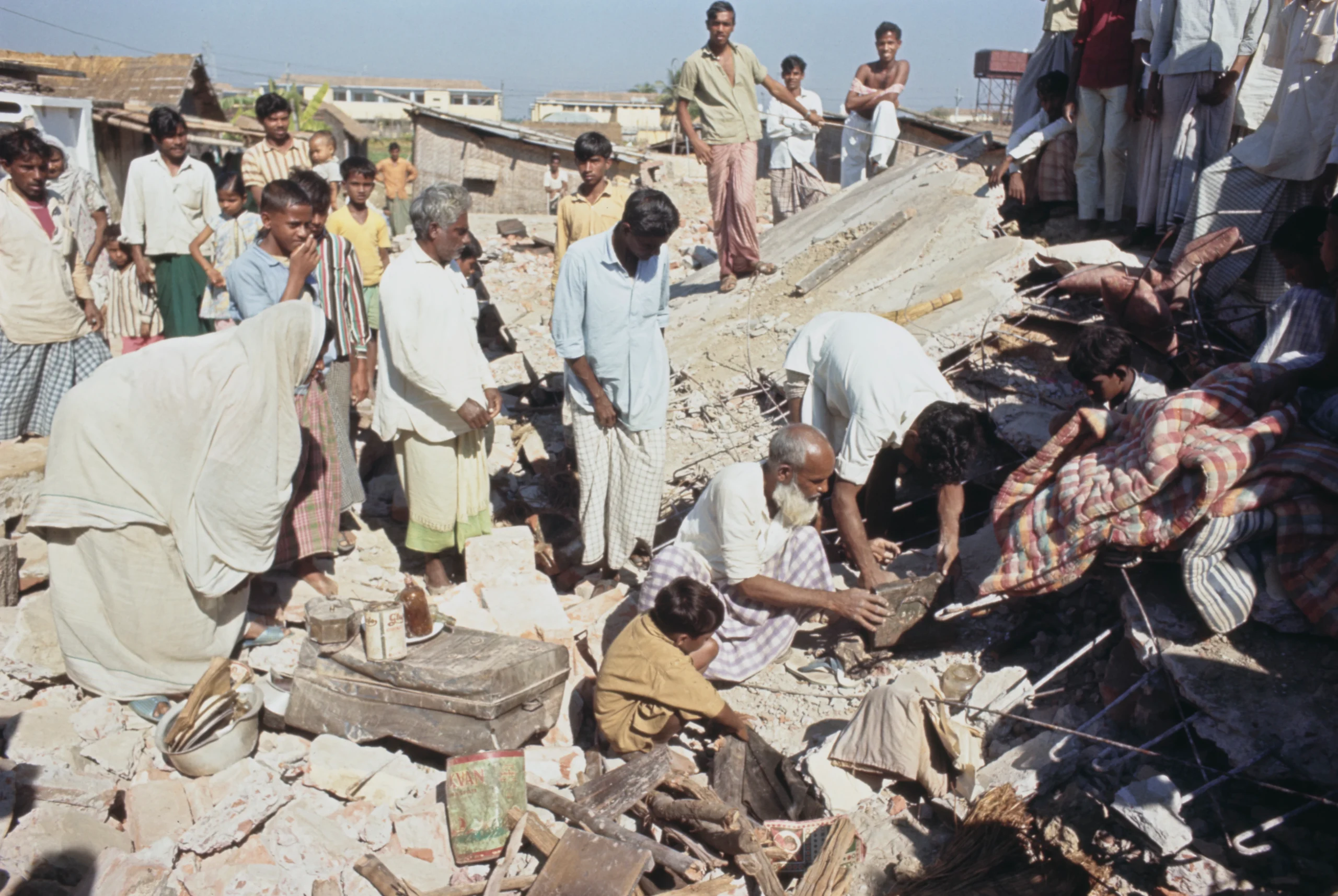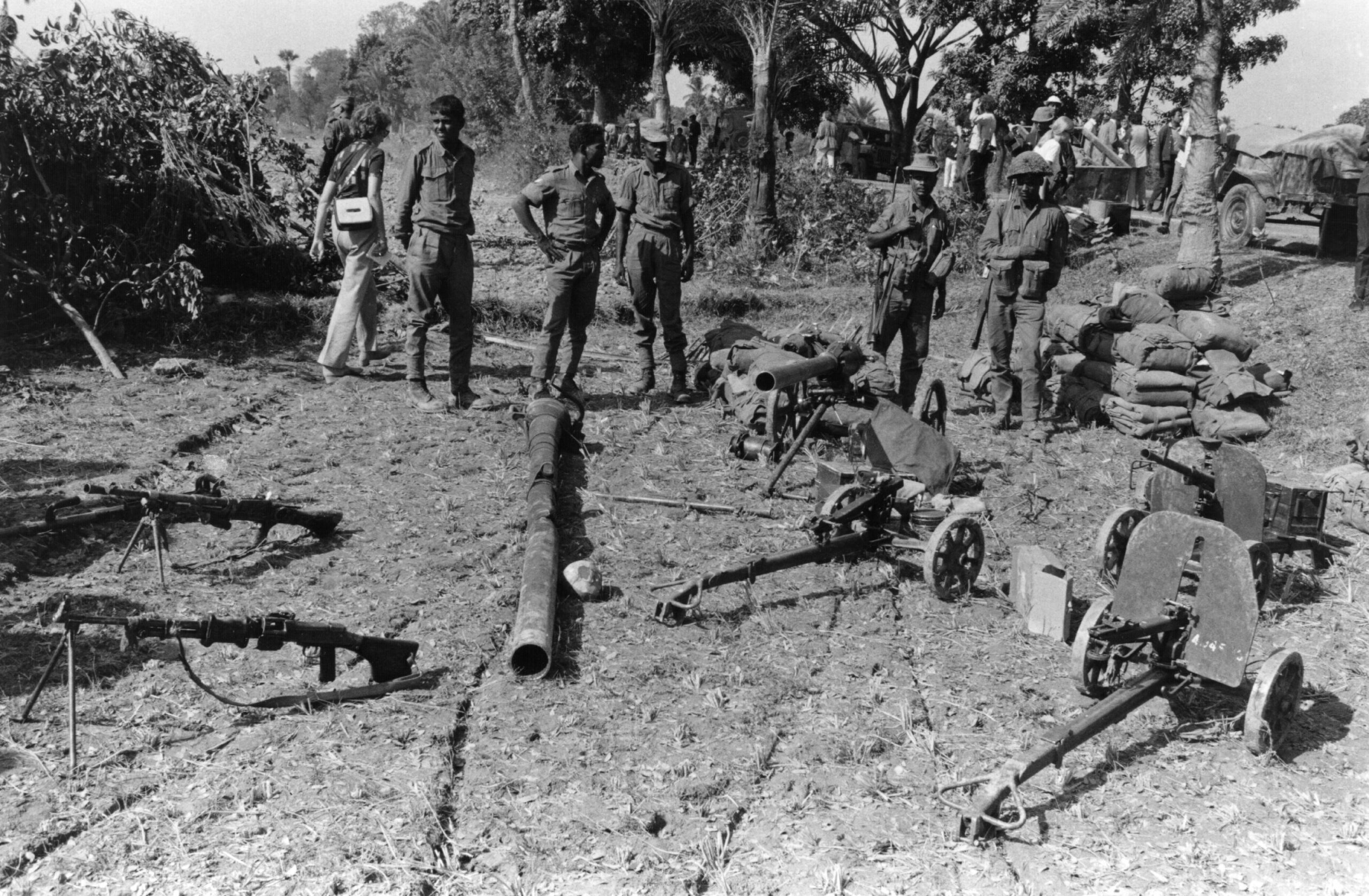This year is the 51st anniversary of Mukti Judho, Bangladesh’s war of Independence. India Today brings to you a series of stories to mark the event.
It was 4 PM and the sun was still beating down as Ershad Ali frantically searched for his father Chikon Ali among the hundreds of bodies piled up in Patkhola water body near the present-day Chuknagar College. Suddenly, his eyes fell on a small child — a girl — trying to feed from her dead mother’s breasts, who lay there lifeless after the firing. The child’s clothes were soaked in blood.
Ershad Ali took up the girl in his arms and brought her home. He named her ‘Sundari’ as he had seen vermilion on her mother’s hair parting and also shaankha (white bangle made from conch shell) on her hands. A local Hindu family raised her.
Another survivor of the shooting, Surendranath Bairagi, saw people preparing their food. All of a sudden, sound of gunshots rang through the small town. People ran helter-skelter like a confused flock, scurrying for cover. Bairagi scampered towards the river, where many bodies lay scattered. When he emerged safe after the shooting, Bairagi found all his brothers dead. In just a few hours on May 20, 1971, around 10,000 refugees desperately trying to cross over to India were mowed down by Pakistan Army’s merciless automatic firing at Bangladesh’s Chuknagar in Khulna bordering West Bengal.
Pakistan’s genocidal campaign during Bangladesh’s Liberation War has few parallels in post-colonial history.
Since the outset of the genocide targeting Bengalis — Hindus and freedom-loving Muslims alike — the Pakistan Army resorted to mass massacre to create a reign of terror that would scare Bengalis to submission. The Chuknagar massacre was one of the many such incidents of mass killing as part of General Tikka Khan’s ‘Operation Searchlight’.
On March 25, 1971, thousands of panic-stricken Bengalis rushed towards the Indian border via Khulna from places like Barisal, Bagerhat, and Faridpur. After a tediously long journey, worsened by hunger and fear, they converged on Chuknagar and adjacent areas by crossing the Bhadra River to take respite for a few days.
Ghulam Hossain, then chairman of Atlia Union, reported this sudden influx to a Pakistani military platoon in Satkhira.
Troops rushed to Chuknagar at frenzied speed, divided into three units. One headed for Malopara-Raipara, the second for the Chuknagar bazaar, and another for the Bhadra river bank. What followed was the most largest and brutal pogrom. The indiscriminate firing from three sides caught the hordes of refugees unawares and defenceless. Men, women and children were gunned down and their efforts to hide in boats, behind trees or in the fields went in vain.
From the marshy areas in Chuknagar to temples, playgrounds, school premises and rivers, lifeless bodies lay strewn everywhere. Bhadra River turned red with the blood of thousands.
‘I WANT TO KNOW MY IDENTITY’
After a local Hindu family took over her responsibility, Sundari grew up in a liberated Bangladesh. In 1984, she got married to Batul Sarkar of the same area. She lost her husband in 1990 and now stays with her sons.
Sundari lives in a tin-shed house, which was allotted to her under a government housing project, on the banks of Kanthaltala River in Dumuria upazila. She is also working as an office assistant at Dumuria Upazila Shilpakala Academy.
Sundari said that before this, she had received 11 satak (around 4,500 square feet) khas land (government land). But as there was a water body, she could not fill it with soil due to financial constraints.
She said, “Every May 20, I go to Chuknagar slaughterhouse in whose vicinity there’s a memorial that was built by the government to pay homage to those who died in the firing. It’s a tomb (like many others) that keeps reminding Bengalis the high cost they paid for freedom.”
Sundari added, “While visiting the slaughterhouse, I am always overwhelmed with emotions. I want to know my identity; I want to know the names of my parents.”
One of the witnesses of the massacre, Fazlur Rahman Morol, the caretaker of the Chuknagar slaughterhouse, said, “After the massacre, many bodies floated on the river. That’s why it was not possible to ascertain the actual number of martyrs.” Especially, the identities of relatives of those who came from Barisal, Faridpur, Bagerhat Sadar, Rampal of Bagerhat, Morelganj, Kachua, Sharankhola areas couldn’t be established.
ABM Shafiqul Islam, president of Chuknagar Genocide 1971 Memory Preservation Council, said that on that day, the massacre took place in an area spread over four miles of Chuknagar.
“After the massacre, the local people immersed some bodies in the Gangrail and Bhadra rivers. They did not consume fish from those water bodies for two months. Some bodies were buried in the ground to avoid stench. Human bones were found during the establishment of Chuknagar College,” Islam revealed.
Sheikh Baharul Alam, a member of the trustee board of Khulna’s ‘Liberation War Archive Museum’, pointed out that the Razakar Army was formed under the leadership of Jamaat’s AKM Yusuf in this region 15 days before the beginning of the war. And this allied force of Pakistan Army assaulted around 10,000 locals.
Baharul said, “In the most brutal massacre of 1971 in Chuknagar, the exact number of martyrs is still unknown, but 10,000 to 12,000 innocent, unarmed Bengalis were killed.”
Local journalists revealed that in recorded human history, there’s no other incident where such a large number of people were killed in such a short time as the one in Chuknagar in May 1971
Shahriar Kabir, an eminent genocide researcher, underlined that in 51 years since Bangladesh’s Independence, around 3,500 mass graves have been identified.
“Such a huge number of graves clearly speak of human casualties at the hands of Pakistan Army. Serious effort from all quarters is required to conduct further investigation in search of such unidentified graves,” said Professor Mamun, who is also a teacher at Dhaka University.
During successive regimes led by Bangladesh Nationalist Party (BNP) and their iron brother Jamaat-e-Islami, a party of war criminals, efforts to uphold liberation war values have been thwarted and war criminals glorified.
Since the assassination of country’s founding father, Bangabandhu Sheikh Mujibur Rahman, the country has been ruled for 30 years under military dictators and BNP-Jamaat alliance. In all those years, efforts had been made to erase testaments to the world’s worst genocide campaign.
Source: India Today




